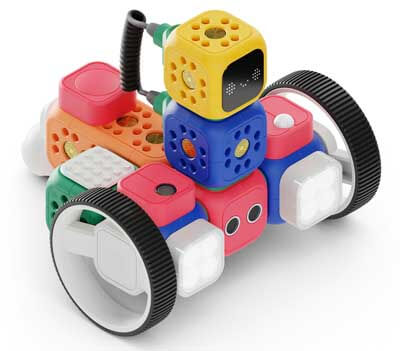Math Skills: Elevating Towards Lifelong Success
Unlocking a child's potential in mathematics is a pivotal aspect of their cognitive development. This article delves into the world of Mathematics skills in kids, exploring the factors that contribute to their improvement and effective strategies for enhancement. While delving into the vital role of parental guidance and educational environments, it refrains from detailing specific parameters and focuses solely on the broader aspects. The article aims to provide valuable insights without delving into the intricacies, making it an accessible read for parents and educators seeking simple yet impactful ways to foster mathematical proficiency in children.

Mathematics skills in kids refer to their ability to understand and apply mathematical concepts, procedures, and reasoning appropriate for their age and developmental stage. These skills encompass a range of fundamental mathematical abilities that children acquire as part of their cognitive development.
At its core, mathematics skills involve a child's capacity to comprehend and manipulate numbers, grasp basic arithmetic operations such as addition, subtraction, multiplication, and division, and solve problems using logical thinking. Additionally, mathematical skills include an understanding of geometric shapes, measurement, patterns, and the ability to analyze and interpret data.
As children progress in their mathematical development, they typically learn to solve more complex problems, work with fractions and decimals, understand concepts like algebra and geometry, and apply mathematical principles to real-world situations. Developing these skills in early childhood lays the foundation for more advanced mathematical learning in later years.
- The Impact of Mathematics Skills in Kids on Future Success and Opportunities
- Key Components of Mathematics Skills
- Strategies to Improve Mathematics Skills in Kids
- Frequently Asked Questions(FAQ)
- Useful resources
The Impact of Mathematics Skills in Kids on Future Success and Opportunities
Mathematics skills in children play a pivotal role in shaping their future success and opportunities. As young minds engage with mathematical concepts, the impact ripples beyond the classroom, influencing various aspects of their lives.
Cognitive Foundation:
Mathematics serves as a cognitive foundation, enhancing critical thinking and problem-solving abilities. A child proficient in math is better equipped to analyze situations, make informed decisions, and navigate challenges effectively.
Academic Achievement:
Strong mathematics skills correlate with academic achievement. Proficiency in this subject opens doors to advanced courses and opportunities for further education, laying the groundwork for future success.
Career Opportunities:
In the professional realm, mathematical competence is highly sought after. Industries such as science, technology, engineering, and mathematics (STEM) increasingly require a solid mathematical foundation. Competence in math widens career choices and increases the likelihood of securing lucrative opportunities.
Financial Literacy:
Understanding mathematical concepts fosters financial literacy. From budgeting to investments, individuals with strong math skills make informed financial decisions, contributing to long-term stability and success.
Problem-Solving in Real Life:
Mathematics skills extend beyond textbooks, enabling children to solve real-life problems. Whether it's measuring ingredients in a recipe or calculating discounts while shopping, math becomes a practical tool for everyday life.
Key Components of Mathematics Skills
1. Fundamental Numeracy:
At the core of mathematics skills lie fundamental numeracy abilities. Children must grasp the concept of numbers, understand their sequential order, and develop the ability to count with accuracy.
2. Basic Arithmetic Operations:
Proficiency in basic arithmetic operations—addition, subtraction, multiplication, and division—is paramount. Mastery of these operations empowers children to solve everyday problems, laying the groundwork for more advanced mathematical thinking.
3. Conceptual Understanding:
Beyond rote memorization, cultivating a deep conceptual understanding of mathematical principles is crucial. Children should comprehend the "why" behind mathematical rules, enabling them to apply these principles in diverse contexts.
4. Problem-Solving Skills:
Mathematics is inherently linked to problem-solving. Children need to develop the ability to analyze problems, identify relevant information, and apply appropriate strategies to reach solutions. This skill transcends the classroom, proving invaluable in various life scenarios.
5. Geometry and Spatial Awareness:
An often overlooked aspect is the understanding of geometric shapes and spatial relationships. Proficiency in geometry contributes to a child's spatial awareness, impacting skills such as navigation, visual perception, and even artistic endeavors.
6. Measurement and Quantification:
Children must grasp the concept of measurement and quantification. This includes understanding units of measurement, converting between them, and applying these skills to measure quantities in the real world.
7. Pattern Recognition:
Recognizing and understanding patterns is a key component of mathematical thinking. Whether in numbers, shapes, or sequences, the ability to identify and predict patterns fosters a deeper understanding of mathematical structures.
8. Data Analysis and Interpretation:
As children progress, they should develop skills in data analysis and interpretation. This involves extracting meaningful information from data sets, making informed conclusions, and presenting findings—a vital skill in our data-driven world.
9. Algebraic Thinking:
Introduction to algebraic concepts marks an advanced stage in mathematical development. Children learn to manipulate variables, solve equations, and apply algebraic thinking to solve more complex problems.
10. Practical Application in Daily Life:
The ultimate test of mathematics skills lies in their application to real-life situations. Children should seamlessly integrate mathematical concepts into their daily lives, from budgeting and cooking to understanding interest rates and making informed consumer choices.
Strategies to Improve Mathematics Skills in Kids
Enhancing mathematics skills in children is a dynamic process that requires a thoughtful combination of effective strategies. From foundational numeracy to advanced problem-solving, these approaches aim to cultivate a deep and enduring understanding of mathematics.
1. Active Engagement and Play:
Encourage hands-on learning through games and activities that involve mathematical concepts. From board games to building blocks, interactive play enhances numerical understanding in a fun and engaging manner.
2. Real-World Applications:
Connect mathematical concepts to real-life scenarios. Whether measuring ingredients in the kitchen or calculating change while shopping, relating math to everyday experiences reinforces its practical relevance.
3. Visual Aids and Manipulatives:
Utilize visual aids and manipulatives to make abstract concepts tangible. Counting with physical objects, using charts, and employing visual representations enhance comprehension, especially for younger learners.
4. Varied Learning Resources:
Diversify learning resources, including books, videos, and educational apps. Tailor materials to the child's learning style, ensuring a mix of visual, auditory, and kinesthetic approaches to cater to different learning preferences.
5. Supportive Learning Environment:
Foster a positive and supportive learning environment. Encourage questions, provide constructive feedback, and celebrate small achievements. A nurturing atmosphere boosts a child's confidence and willingness to explore mathematical concepts.
6. Personalized Learning Plans:
Recognize individual learning styles and pace. Implement personalized learning plans that cater to each child's strengths and areas of improvement, allowing for a tailored approach to mathematical development.
7. Collaborative Learning:
Facilitate collaborative learning experiences. Group activities, peer teaching, and collaborative problem-solving foster communication skills and expose children to different perspectives, enhancing overall mathematical understanding.
8. Progressive Challenges:
Gradually introduce progressively challenging tasks. Incremental challenges push children to expand their mathematical capabilities, promoting a growth mindset and a willingness to tackle more complex problems.
9. Practical Application Projects:
Engage children in projects that require practical application of mathematical skills. Whether it's designing a budget, creating a geometric art piece, or conducting a simple data analysis project, hands-on applications deepen understanding.
10. Patience and Encouragement:
Promote a patient and encouraging approach. Math can be challenging, and setbacks are a natural part of the learning process. Encourage perseverance, highlight progress, and reinforce the idea that mistakes are opportunities for learning.
Frequently Asked Questions(FAQ)
What are the 4 types of math?
>
The four main types of math are:
1. Basic Math: This is about adding, subtracting, multiplying, and dividing numbers.
2. Algebra: It's about solving problems using letters and symbols.
3. Geometry: This is about shapes, sizes, and space.
4. Calculus: It's about studying how things change and move.
Is Maths hard to learn?
>
Some people might find math a bit tough, but with the right help, it often becomes much easier. Whether math feels hard can depend on how you learn best and how it's taught. Using methods like consistent practice, relating math to everyday life, and getting clear explanations can make even tricky concepts easier to grasp. If you find yourself struggling, don't hesitate to reach out for extra support through tutoring or joining a study group, and always take the time you need to fully understand the material.
How can I learn mathematics?
>
Learning math can be fun! First, make sure you know basic stuff like adding and shapes. Decide why you want to learn – maybe for school or because you're interested! Practice by doing math problems and using math in everyday life. Try different ways to learn, like books or online classes. Understand why math works, not just how to do it. If you need help, ask someone! Keep trying even if it's hard, and celebrate when you get better. Math is used in lots of cool ways, like building things or figuring out money. With practice and a positive attitude, you can enjoy learning math!
At what age is it easiest to learn math?
>
Children between the ages of 5 to 7 years old are often at a developmental stage where they are most receptive to learning math skills.
Why I don't understand maths?
>
Understanding mathematics can pose challenges for various reasons. These include gaps in foundational knowledge, differences in learning styles, math anxiety, limited exposure to concepts, and the inherent complexity of certain mathematical ideas. Additionally, specific learning differences such as dyscalculia can impact mathematical abilities, necessitating specialized support. Overcoming these hurdles requires patience, seeking help when necessary, and fostering a positive attitude towards learning mathematics.
How should a beginner start math?
>
Start your math journey by mastering basic concepts and practicing regularly. Apply math to real-life situations and seek help when needed. As you progress, tackle more complex topics, setting achievable goals along the way.
Useful resources
Cool Math Games: Make math fun and engaging for your kids with Cool Math Games! Explore a variety of interactive games covering arithmetic to algebra. Visit https://www.coolmathgames.com to start playing!
Math Playground: Spark your child's love for math with Math Playground! From elementary to middle school, discover a range of math games and logic puzzles at https://www.mathplayground.com.
SplashLearn: Help your kids excel in math with SplashLearn! Explore grade-level math learning games from Kindergarten to Grade 5 at https://www.splashlearn.com and make learning enjoyable!
In the journey to enhance mathematics skills in children, we've explored a myriad of components, strategies, and resources that collectively contribute to a holistic approach. From laying the foundational blocks of numeracy to delving into advanced problem-solving, the significance of math in a child's cognitive development and future opportunities is undeniable.
By fostering an environment that encourages active engagement, real-world application, and personalized learning, parents and educators can empower children to not only grasp mathematical concepts but also develop a genuine appreciation for the subject.
As we strive to unlock the potential of young minds, let us remember that the journey of mathematical proficiency is not just about solving equations—it's about instilling a love for learning, nurturing problem-solving skills, and laying the groundwork for a future where mathematical competence opens doors to academic achievement, career opportunities, and a lifelong journey of intellectual growth. Together, let us continue to inspire a generation where the language of mathematics becomes a gateway to boundless possibilities.
Dive into the wealth of knowledge within "44 Essential Kids' Skills: Fueling Future Success and Opportunities", where we unfold the key abilities essential for your child's overall development.
Written by: Administrator
Published on:
Last updated on:
You May Also Like:




Post a Comment
The comments are closed.









